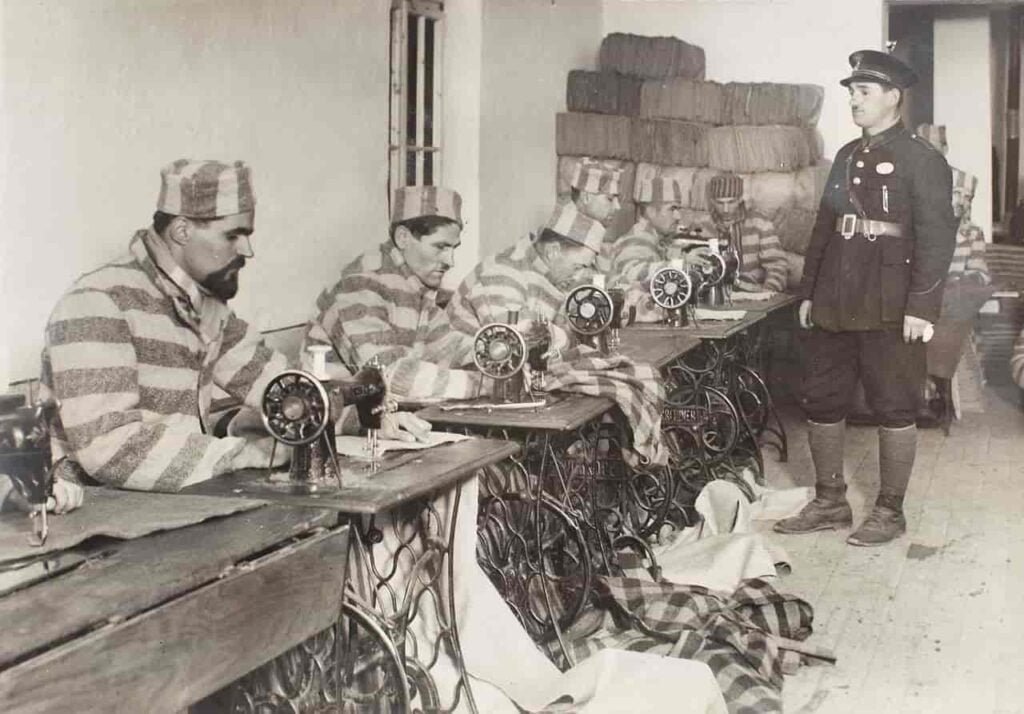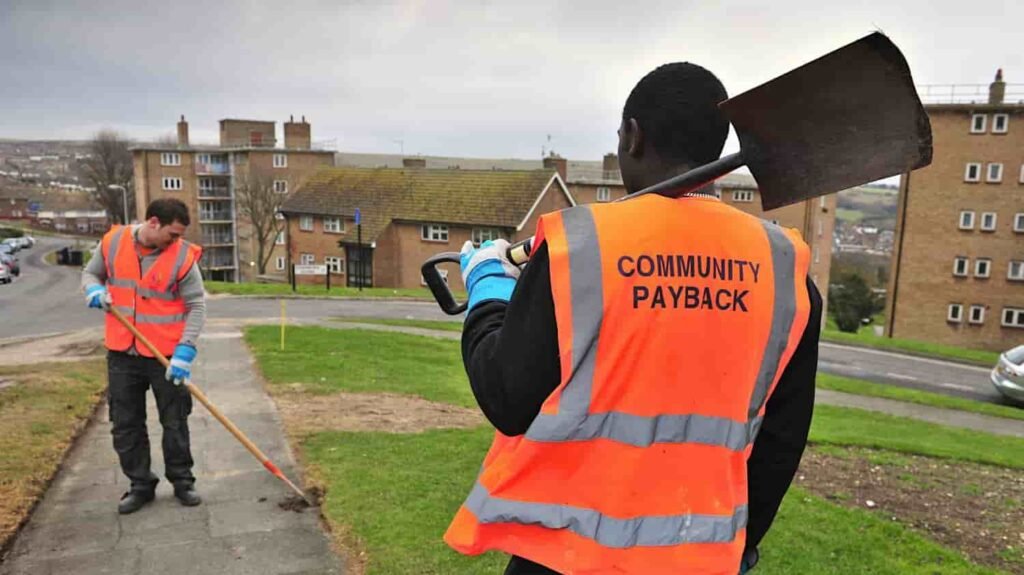Community Service for Convicts:- A rehabilitation strategy that aims to reintegrate people into society while holding them accountable for their misdeeds is community service for prisoners, which covers a wide range of transgressions. With an emphasis on personal development, accountability, and societal well-being, this program provides an alternative to jail.
Offenders have the chance to atone for their wrongdoing by positively impacting their communities by performing meaningful community service. It encourages social reintegration, develops empathy, and instills a feeling of accountability.
This helps people end the cycle of crime by acting as a strong deterrent to further criminal activity.
Programs for community service come in a broad variety, from cleaning public areas and mentoring young people in danger to taking part in environmental conservation efforts and skill-development projects.

These programs not only help the community by addressing needs, but they also provide prisoners an opportunity to learn new skills and develop a feeling of self-worth. In general, community service for convicted criminals is an approach to restorative justice that aims to change lives, lower recidivism, and build safer, more cohesive communities.
What is Community Service? (Community Service for Convicts)
Community service refers to volunteer, unpaid tasks that people or organizations do out to serve their neighborhoods or meet social needs. It entails giving your time, energy, and talents without expecting payment to promote various causes, organizations, or initiatives.
Volunteering at local charities, taking part in neighborhood clean-up campaigns, mentoring young people, planning fundraisers, or helping with disaster relief are just a few examples of the various ways one might engage in community service.
Promoting social responsibility, civic involvement, and healthy community development are the main objectives of community service. It encourages cooperation and empathy among people, aids in resolving urgent challenges facing the society, and builds the social fabric.
The benefits of community service include a sense of fulfillment, personal development, and a better sense of belonging for both volunteers and the communities they serve.
Overall, performing community service helps people and civilizations handle problems, fortify links among neighbors, and have a good influence on the globe.
Which categories of offenders receive community service sentences?
Depending on a number of variables, including the jurisdiction, the seriousness of the offense, the criminal justice system’s regulations, and the specifics of the case, different sorts of offenders may be sentenced to community service for different crimes.

Community service, on the other hand, is frequently taken into account for offenders who have committed non-violent or relatively minor offenses, particularly if it is their first violation. Community service is frequently used as a punishment or as an alternative to jail for the following common offenses:
- Property Crimes: Community service may be required as a penalty for offenses like shoplifting, vandalism, or small-time theft.
- Drug Offenses: Community service may be provided as an alternative to jail to those accused of possessing minor amounts of narcotics, especially for personal use.
- Traffic Infractions: As part of the punishment for some traffic violations, such as driving while intoxicated (DUI) or reckless driving, community service may be required.
- Juvenile Offenses: Rather than imprisoning young offenders, community service is frequently employed to rehabilitate and educate them.
- Non-violent White-Collar Crimes: As part of a plea bargain or sentencing, community service may be required for offenses including embezzlement, fraud, or petty financial crimes.
- It is crucial to note that judges take into account a variety of variables when determining the proper sentencing for an offender, and that the availability and scope of community service as a punishment might differ greatly by jurisdiction.
Conclusion
For those who have committed non-violent or minor offenses, community service acts as a useful rehabilitative tool within the criminal justice system, providing an option to jail.
While attending to urgent communal needs, it encourages personal development, accountability, and responsibility. Offenders can make apologies and develop crucial life skills by participating in meaningful volunteer activity.

In addition, community service promotes civic responsibility and lowers recidivism, which both help to make society safer and more united. The goals of this strategy are to create a more equitable and compassionate society by highlighting the value of second chances and the transformational power of people. It is consistent with the ideals of restorative justice.